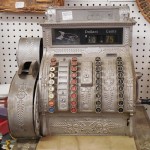
As “Mystery Diner” shows, dishonest employees are ingenious in figuring out how to get their hands on your revenues.
Food Network’s “Mystery Diners” is a show that is sure to strike fear into the hearts of small business owners. The show answers the question that must cross every business owner’s mind from time to time: What are employees getting up to when I’m not watching? On this show, the answer to that question is inevitably “Nothing good.”
If you haven’t seen the show, here’s how it works. Host Charles Stiles is founder and president of Business Evaluation Services, a national mystery shopper company. On each episode of “Mystery Diners,” the owner of an ailing restaurant has called in Stiles to help diagnose why revenues are down, sometimes disastrously so. Stiles places hidden cameras throughout the establishment and sometimes even in the parking lot to expose what goes on behind the scenes when employees assume no one is watching. Also, several of Stiles’ employees go undercover, either as new restaurant employees in training or as diners.
The show provides an eye-opening education into the large number of ingenious ways employees find to rip off their bosses. Owners are first stupefied and then outraged by what they see on the hidden cameras. Fireworks really fly when the offending employees are brought into the hidden location where Stiles and the restaurant owner have been monitoring their behavior via a large bank of TV monitors. Some shout their denials and others plead for understanding. Most are fired on the spot, but a few –usually workers who appear to be been misled by the chief offender – are given a second chance.
Aside from being an expose of human greed and or, in some cases, flat out stupidity, the show also is a primer on how not to run a small business. These common missteps by the restaurant owners are repeated again and again:
• They decide to rest on their laurels. Quite often, the restaurant in question has been around for quite a while and after years of success, the owner decided to scale back on his/her hours, often drastically. This would be fine if they had a manager in place who was trustworthy, but all too often the manager turns out to be the one with his/her hand in the till.
Lesson to be learned: Small businesses need to be tended and tended carefully. Your initial success depended on your hard work, and it will continue to depend on you paying close attention to the business. This doesn’t mean you shouldn’t take time off, but you probably can’t afford to work short hours week after week and assume things will be fine in your absence.
Also, if you’re turning over significant responsibilities to someone else, be very, very careful to hire someone with a sterling reputation and then carefully monitor their work. In case after case on “Mystery Diners,” the owner has hired a relative or a friend for a key role, not because the person has a lot of experience but simply because they’re someone the owner knows and likes. This is frequently a huge mistake.
• They fail to keep on top of the numbers. Too many of the restaurateurs Stiles helps have been very slow to react once their revenues start to fall. For example, it shouldn’t take an owner six or eight months to react if liquor and wine revenues are significantly off what they’ve been in the past. Staying on top of your numbers is crucial and not something you can let slide.
• They don’t have checks and balances in place to stop theft or embezzlement. As this Entrepreneur article on how to stop employee fraud points out, while many people in a small business have to take on numerous jobs “…the most dangerous multi-tasker is a solitary administrator/bookkeeper who opens the mail, handles deposits and payments and files transaction documents. No one person should control that many aspects of the business—it’s asking for trouble.”
If you’re not handling things like purchasing and vendor payments yourself, make sure you don’t have just one person in charge of these and similar key functions. As the Entrepreneur article recommends, at the very least have one person in charge of the money going out and another person in charge of the money coming in will significantly eliminate the possibility of fraud.
As “Mystery Diners” illustrates week after week, one employee with bad intentions can do tremendous damage to a small business. We all like to think the workers we’ve hired are honest, well-meaning people, and the vast majority of them are. But that doesn’t mean it’s not important to be constantly vigilant and to have policies and procedures in place to protect your business from any bad actors that might come your way.
